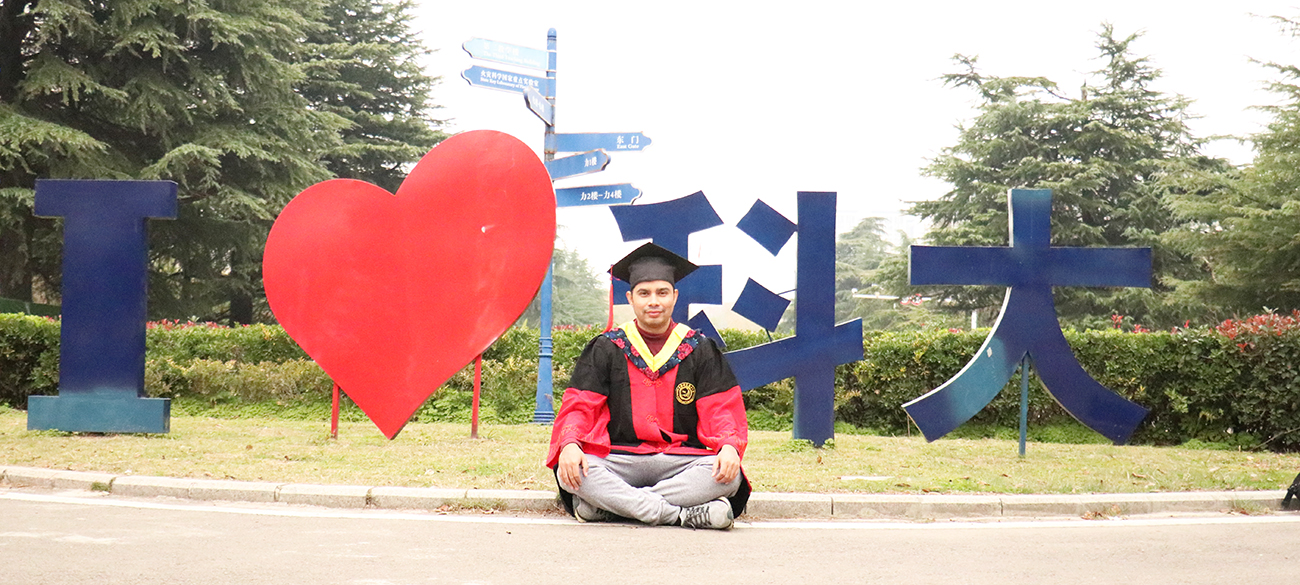
TWAS PhD fellowships have been building scientific strength in the developing world by training new scientists since 2004. And now, the programme has reached a remarkable milestone, graduating over 1,000 PhDs.
The 1,000th PhD graduate is Aakash Kumar, who left his home country of Pakistan in 2017 to pursue doctoral studies at the University of Science and Technology of China (USTC) in Hefei, China. “I wanted to do bigger things in my life, so I decided to apply for a scholarship,” he said.
When Kumar began his PhD programme, he was primarily focused on electronic communications technology, and wasn’t certain how he wanted his career to develop. His supervisor, automation science expert Yin Baoqun, convinced him to enter artificial intelligence (AI) research. It was very new for Kumar at the time, but as he pursued cutting-edge research skills at the university, he found himself developing a crucial talent for understanding and working with AI.
“AI is involved in every field, in medicine, business and e-commerce,” said Kumar, citing that AI has potential to help doctors with diagnoses, improve image and video processing, and reduce the level of human effort needed for countless other tasks.
What TWAS Fellowships have accomplished
So far, over 2,360 developing world scientists have begun PhD research through fellowship programmes organized by TWAS and its partners throughout the world. The enormous majority of these fellowships are for scientists from the global South and take place in developing countries other than their own.
These kinds of fellowships, also called ‘South-South Fellowships’, are a cornerstone of the Academy’s work, establishing new and better-trained scientists in the global South who then go on to train further scientists in their home countries. South-South Fellowships also create bonds between scientists in different developing countries, often allowing the emerging economies such as China, India and Brazil, to provide crucial training in research skills to less-developed nations.
These fellowships also expose scientists to expertise that is simply unavailable in their home countries. This was the case for Kumar, who is from the Sindh Province in southern Pakistan. He said it wouldn’t be possible for him to find training and work in AI in Sindh. But now that he’s trained in China, his ultimate goal is to return home and found an AI institute that can both carry out projects and teach courses in the rapidly accelerating technology.
He also noted that he is from a Hindu minority community in Sindh, and he would like to help provide opportunities for that community as well.
“This is my dream actually,” said Kumar. “My country is suffering an economic crisis right now and people are leaving. But I want to serve my country, because they need us now. With a PhD and knowledge of AI, we can do better things.”
What are the benefits of a fellowship?
One key element of his training was the development of professional relationships. Kumar said that he developed a relationship with his “perfect mentor, Prof. Yin.”
“They’re very helpful, and if you ask them anything about your research project they will definitely help you,” said Kumar about his experience at USTC. “I can ask anything from Prof. Yin and he can help me.”
He described the purpose of his work as reducing the amount of computing power needed to run a ‘neural network’, a means by which AI can process data that simulates the human brain. Ideally, a neural network model should be able to be so compact that it can exist within a mobile phone.
To run the AI model Kumar worked on, capable of performing tasks such as classifying images, he said he would normally need as many as 50 computer processor cores. But in time he managed to prune enough excess code so that his model could run on a single laptop with a dual-core processor — though still not quite small enough for a mobile phone. He published numerous studies on his efforts, including one in Applied Intelligence and another in the International Journal of Machine Learning and Cybernetics, both of them part of his PhD thesis.
Kumar said he expects to proceed next with a postdoctoral position at the Zhongshan Institute of Changchun University of Science and Technology in Zhongshan, China. He’s also planning to learn more about how artificial intelligence operates autonomous vehicles, which he believes to be a field with a promising future.
Sean Treacy

